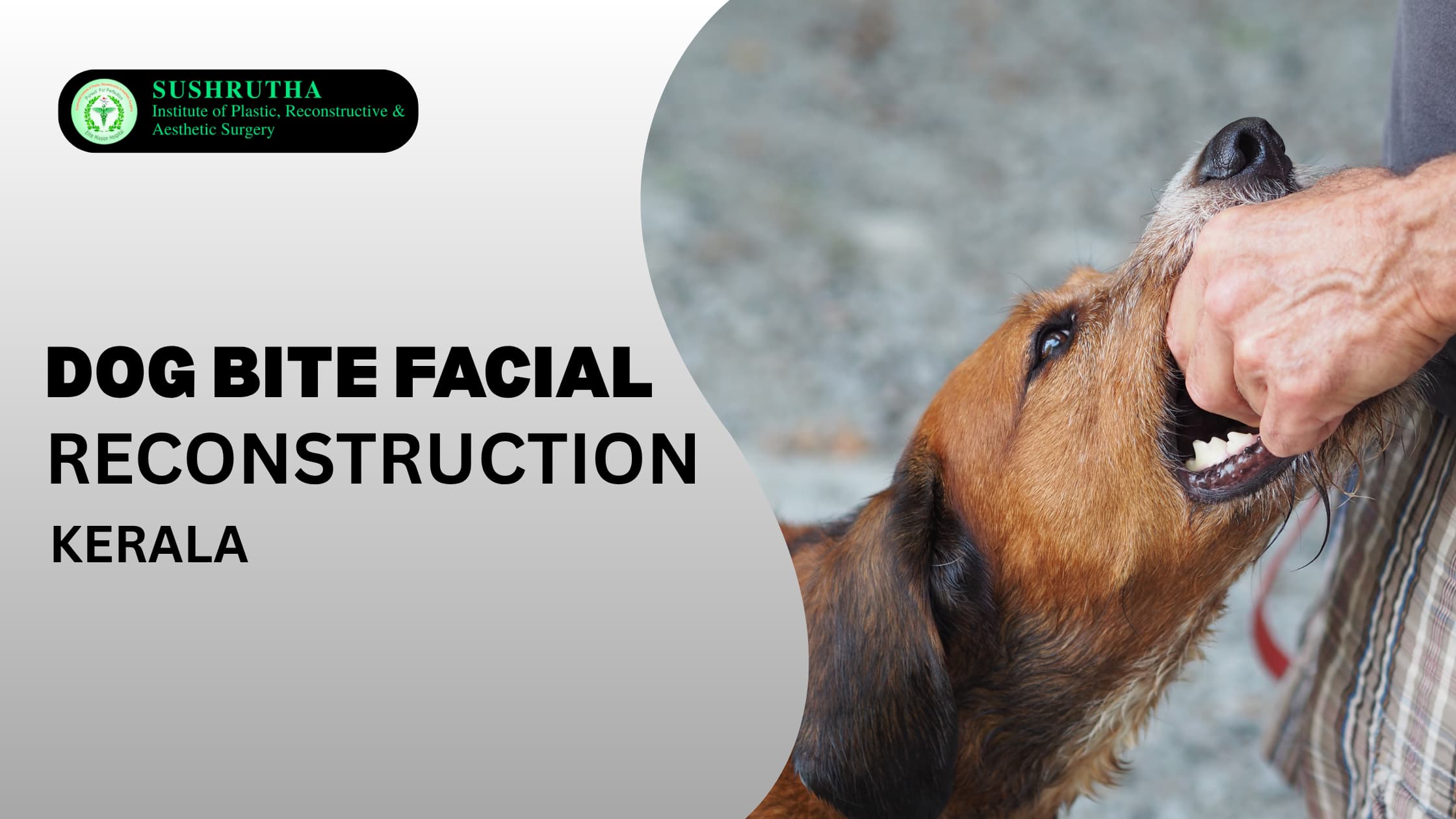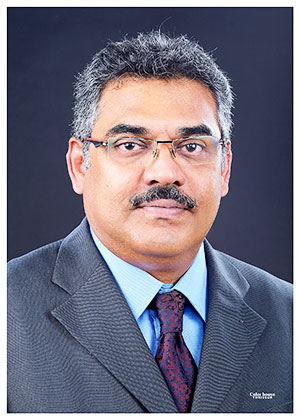Dog bite injuries, especially when they involve the face, are not only physically damaging but also emotionally distressing. In Kerala, stray dog populations and occasional encounters with aggressive animals make such injuries relatively common. Facial dog bites can result in deep tissue damage, functional impairment, and significant aesthetic concerns, making early and expert intervention essential.
At Sushrutha Institute of Plastic, Reconstructive & Aesthetic Surgery in Thrissur, we provide comprehensive facial reconstruction services, combining advanced surgical techniques, patient-focused care, and state-of-the-art technology to restore both function and appearance.
Understanding Facial Dog Bite Injuries
Facial injuries from dog bites can range from minor cuts and bruises to severe tissue loss or avulsion. The severity of the injury depends on several factors:
Size and breed of the dog: Larger breeds can cause deeper lacerations and tissue damage.
Bite force and location: Bites to sensitive areas such as the lips, nose, or eyelids require more complex reconstruction.
Time before medical intervention: Delayed treatment increases the risk of infection, scarring, and permanent functional impairment.
Common facial areas affected include:
Lips and mouth
Nose
Eyelids and surrounding eyes
Cheeks and jawline
Facial bites pose additional challenges due to the face’s complex anatomy, which includes muscles, nerves, and blood vessels, all of which must be carefully restored to maintain both function and appearance.
Complications of Untreated Injuries
Without prompt and proper treatment, dog bite injuries can lead to serious complications:
Infection, including cellulitis, abscesses, or more severe systemic infections
Permanent scarring or disfigurement, impacting aesthetics and self-confidence
Nerve damage, resulting in impaired facial movement or sensation
Emotional distress, including anxiety, depression, and reduced self-esteem
Early intervention by specialized plastic surgeons significantly reduces these risks, providing both functional recovery and cosmetic restoration.
Surgical Techniques for Facial Reconstruction at Sushrutha Institute
At Sushrutha Institute, reconstructive strategies are tailored to each patient depending on the type and severity of injury.
| Surgical Technique | When It’s Used | Benefits | Recovery Time | Considerations |
|---|---|---|---|---|
| Primary Closure | Minor, clean lacerations | Quick, minimal scarring, preserves natural contour | 1–2 weeks | Not suitable for large tissue loss |
| Local Flap Reconstruction | Moderate tissue loss (lips, cheeks, nose) | Maintains blood supply, natural contour restoration | 2–4 weeks | Requires precise planning to avoid asymmetry |
| Skin Grafting | Extensive tissue loss | Covers large defects, restores surface coverage | 3–6 weeks | May require secondary procedures for aesthetics |
| Microsurgical Repair | Complex injuries involving nerves or vessels | Restores function, high precision | 4–8 weeks | Technically demanding, specialized expertise required |
| Composite Reconstruction | Severe tissue loss involving multiple layers | Restores both form and function of facial units | 6–12 weeks | Long procedure, may need staged surgeries |
Post-Surgical Care
Recovery is a critical part of the reconstructive process. At Sushrutha Institute, we provide comprehensive post-operative care:
Wound Care: Regular monitoring and dressing changes to prevent infection and promote healing.
Physical Therapy: Exercises to restore facial muscle movement and prevent stiffness.
Scar Management: Use of silicone sheets, massage therapy, and laser treatments to minimize scarring.
Emotional Support: Counseling and psychological support to help patients cope with trauma and regain confidence.
Patient Journey at Sushrutha Institute
Initial Consultation: Detailed evaluation including imaging, assessment of tissue damage, and overall health.
Personalized Surgical Plan: Customized treatment approach based on severity, age, and functional requirements.
Surgery: Performed using advanced techniques to restore appearance and function.
Post-Operative Care: Ongoing monitoring to ensure proper healing and minimize complications.
Long-Term Follow-Up: Assessment for refinement procedures and continued functional recovery.
Preventive Tips to Avoid Dog Bite Injuries
While not all dog bites can be prevented, the risk can be reduced through:
Avoiding contact with unfamiliar or stray dogs
Teaching children safe interactions with animals
Ensuring domestic dogs are vaccinated, trained, and monitored
Exercising caution around aggressive or unfamiliar animals
Why Choose Sushrutha Institute?
Expert Surgeons: Highly skilled in complex facial reconstruction techniques.
Advanced Technology: State-of-the-art operating rooms and surgical equipment.
Patient-Centric Care: Holistic approach addressing both physical recovery and psychological wellbeing.
Proven Outcomes: Restoring both function and aesthetics to improve quality of life.
Immediate medical attention is essential—preferably within hours.
Modern reconstruction aims to restore both form and function, though minor scarring may remain.
Minor repairs: 1–2 weeks; flap reconstruction: 2–4 weeks; complex microsurgery: 4–12 weeks
Risks include infection, scarring, or nerve damage, which are minimized by specialized care.
Yes—physical therapy, scar management, and sometimes nerve rehabilitation are recommended.
Conclusion
Facial dog bite injuries require immediate and specialized care to restore both appearance and function. At Sushrutha Institute of Plastic, Reconstructive & Aesthetic Surgery, we provide comprehensive treatment plans, using advanced surgical techniques and personalized care to ensure the best outcomes for patients in Kerala.
Early consultation with our experienced surgeons is crucial for optimal recovery, minimized complications, and long-term satisfaction.








